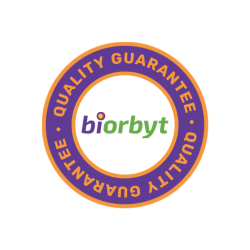You have no items in your shopping cart.
Cart summary

DEFB4A Protein, Human, Recombinant
Catalog Number: orb1961631
| Catalog Number | orb1961631 |
|---|---|
| Category | Proteins |
| Description | β-Defensin 4A is a membrane-active cationic peptide that functions in inflammation and innate immune responses. There are at least 30 β-Defensins, which are distinguished from α-Defensins by the connectivity pattern of their three intermolecular disulfide bonds. Members of the Defensin family are highly similar in protein sequence. This gene encodes Defensin, DEFB4;, which has broad-spectrum antimicrobial activity and may play an important role in innate epithelial defense. They are highly expressed in skin and tonsils, and to a lesser extent in trachea, uterus, kidney, thymus, adenoid, pharynx and tongue. β-Defensin 4A has low expression in salivary gland, bone marrow, colon, stomach, polyp and larynx. No expression in small intestine. The 45 amino acid mature human BD3 shares 38% and 33% amino acid sequence identity with mouse and rat BD3, respectively. |
| Tag | Tag Free |
| Purity | 98.00% |
| MW | 9 KDa (reducing condition) |
| UniProt ID | O15263 |
| Protein Sequence | Gly24-Pro64 |
| Expression System | E. coli |
| Biological Origin | Human |
| Biological Activity | β-Defensin 4A is a membrane-active cationic peptide that functions in inflammation and innate immune responses. There are at least 30 β-Defensins, which are distinguished from α-Defensins by the connectivity pattern of their three intermolecular disulfide bonds. Members of the Defensin family are highly similar in protein sequence. This gene encodes Defensin, DEFB4;, which has broad-spectrum antimicrobial activity and may play an important role in innate epithelial defense. They are highly expressed in skin and tonsils, and to a lesser extent in trachea, uterus, kidney, thymus, adenoid, pharynx and tongue. β-Defensin 4A has low expression in salivary gland, bone marrow, colon, stomach, polyp and larynx. No expression in small intestine. The 45 amino acid mature human BD3 shares 38% and 33% amino acid sequence identity with mouse and rat BD3, respectively. |
| Expression Region | Gly24-Pro64 |
| Storage | -20°C |
| Note | For research use only |
| Application notes | Reconstitute the lyophilized protein in distilled water. The product concentration should not be less than 100 μg/ml. Before opening, centrifuge the tube to collect powder at the bottom. After adding the reconstitution buffer, avoid vortexing or pipetting for mixing. |
| Expiration Date | 6 months from date of receipt. |
Human DEFB4A protein [orb604048]
Greater than 90% as determined by SDS-PAGE.
31.3 kDa
E.coli
20 μg, 100 μg, 1 mgHuman DEFB4A protein [orb391616]
ELISA, MS, SDS-PAGE, WB
Greater than 95% as determined by SEC-HPLC and reducing SDS-PAGE.
E. coli
500 μg, 50 μg, 10 μgRecombinant human Beta-defensin 2 protein,N-His&Trx [orb1975876]
> 90% as determined by SDS-PAGE
22.3 kDa
500 μg, 100 μgRecombinant Human Beta-defensin 4A protein(DEFB4A) (Active) [orb1650734]
500 μg, 5 μg, 20 μg, 100 μg, 250 μg, 1 mg




